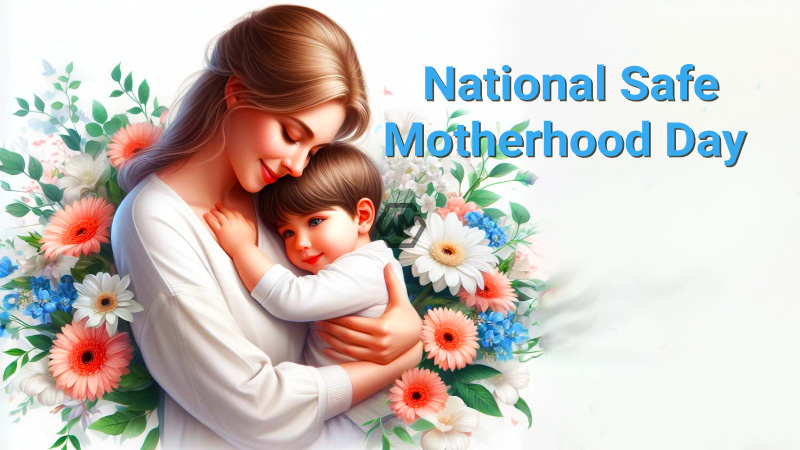- National Safe Motherhood Day is observed to bring attention to the safety of pregnant women in India.
- Launched in July 2016, PMSMA seeks to offer all pregnant women progressive, free treatment and care.
- Early prenatal care is crucial once a woman becomes pregnant.
Every year, National Safe Motherhood Day is observed to bring attention to the safety of pregnant women in India, a nation with a deficient healthcare system.
One factor contributing to the country’s rising death rates is the lack of access to adequate medical facilities. Launched in July 2016, PMSMA seeks to offer all pregnant women progressive, free treatment and care.
National Safe Motherhood Day
Pregnancy planning is essential, according to medical professionals, if you want to embrace motherhood safely and avoid difficulties after birth.
Pregnancy should be planned ahead of time, and before starting therapy, several maternal risk factors should be determined, including blood disorders, diabetes, obesity, infectious infections, and hypertension. Expectant parents should be aware of high-risk factors for the fetus, such as genetic anomalies, and take prompt action to address these difficulties.
Women should seek prenatal care and start their pregnancies as early as possible, as the body can best adapt to the demands of pregnancy between the ages of 22 and 26. After thirty years, diseases like PCOD, endometriosis, or early-onset diabetes may make it difficult for women to conceive naturally.
Early prenatal care is crucial once a woman becomes pregnant. The first trimester lasts up to 12 weeks, the second trimester lasts 12–24 weeks, and the third trimester lasts 24–36 weeks.
It is advised to get enough sleep and eat small meals frequently to avoid feeling queasy. If a patient has high blood pressure or diabetes before becoming pregnant, their medication should be continued after consulting a physician.
Pregnancy’s psychological effects include body image concerns, regular, safe exercise, socializing, procedural anxiety and stress management, and readiness. A pregnant woman’s mental health needs are met in large part by having close relationships with her family and friends, who help her feel safe and comfortable.



